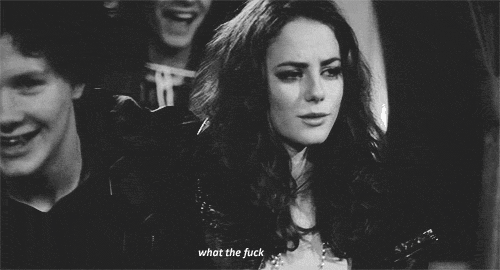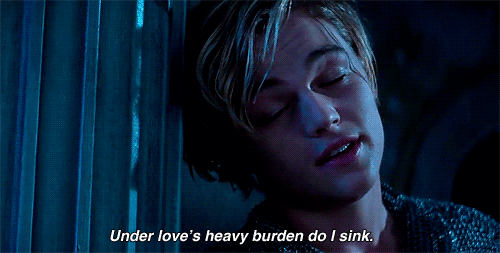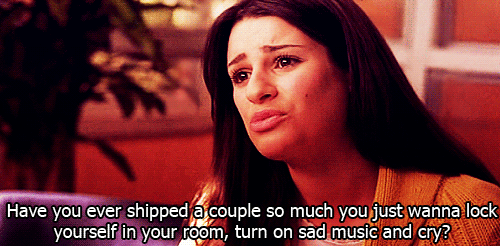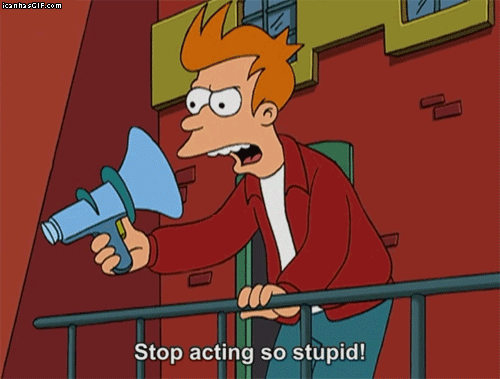It's been awhile since I've ventured out into the fascinating world that is straight culture.
So far this summer I've been spending my time either working summer school or playing Ultimate, so my interactions with the straights has been fairly limited. By which I mean I'm still surrounded by the culture on a daily basis, but can usually distract myself with the other activity I'm engaged in so it's not as mind-numbing. For example, when somebody at pick-up is talking about the person they've met on Tindr and how, "girls who text winky faces are just looking for it from anybody they can get it from," I can use that as a great moment to go get back in the game instead of violently eviscerating that slut-shaming idiot.
Last night, I had an opportunity to be amongst those who love Grey's Anatomy for an extended period of time.
Three fantastic hours of conversation about whether men who wear eyeliner actually want to be women. Why a card including "Horneytown, NC" was the best card in a game of Balderdash. And how great Lindsey Lohan's tits looked in Mean Girls.
To clarify, that last one on Lindsey Lohan wasn't just a passing observation. We put the movie up on Netflix and it was like there was a commentary track running that was singularly about her tits the entire time. Like each new scene warranted another out-loud opinion on how her boobs looked and a repetition of how she's really "gone downhill" since then.
Which, if I had to identify the major issue I have with straight people it's that constant, unvaried life commentary. It's like they've all been handed scripts that they're diligently reading from.
So, in regards to straight rhetoric, I bring you a new set of 3 common lies that straight people in relationships tell themselves. (Note: These weren't all brought up last evening, they just happen to be ones that were banging around the ol' thought-noodle recently, and being amongst the monogamous sect last night brought them to surface again.)
So far this summer I've been spending my time either working summer school or playing Ultimate, so my interactions with the straights has been fairly limited. By which I mean I'm still surrounded by the culture on a daily basis, but can usually distract myself with the other activity I'm engaged in so it's not as mind-numbing. For example, when somebody at pick-up is talking about the person they've met on Tindr and how, "girls who text winky faces are just looking for it from anybody they can get it from," I can use that as a great moment to go get back in the game instead of violently eviscerating that slut-shaming idiot.
Last night, I had an opportunity to be amongst those who love Grey's Anatomy for an extended period of time.
Three fantastic hours of conversation about whether men who wear eyeliner actually want to be women. Why a card including "Horneytown, NC" was the best card in a game of Balderdash. And how great Lindsey Lohan's tits looked in Mean Girls.
To clarify, that last one on Lindsey Lohan wasn't just a passing observation. We put the movie up on Netflix and it was like there was a commentary track running that was singularly about her tits the entire time. Like each new scene warranted another out-loud opinion on how her boobs looked and a repetition of how she's really "gone downhill" since then.
Which, if I had to identify the major issue I have with straight people it's that constant, unvaried life commentary. It's like they've all been handed scripts that they're diligently reading from.
Obliterate the past.
When there's the idea of the one, and you've found that one presently, it means that all other time periods and all other people that may have been within those time periods need to be disregarded. Or, at the very best, only talked about in the most dismissive way possible. What the two of you have presently is so much better than anything you had before, and will last even in the face of possible future temptation. All past loves and all future interactions will be meaningless when faced with the blinding love that exists now. It's a great ideal that ignores the reality of serial monogamy, and makes everybody sound like they're 15 years old experiencing that first real heart-melting romance.
When there's the idea of the one, and you've found that one presently, it means that all other time periods and all other people that may have been within those time periods need to be disregarded. Or, at the very best, only talked about in the most dismissive way possible. What the two of you have presently is so much better than anything you had before, and will last even in the face of possible future temptation. All past loves and all future interactions will be meaningless when faced with the blinding love that exists now. It's a great ideal that ignores the reality of serial monogamy, and makes everybody sound like they're 15 years old experiencing that first real heart-melting romance.
Only you can have me.
Braggart men who will not shut up about how sexy their partner is. Monogamous couples that get off on walking right up to the line of cheating. Couples that participate in swinger parties with the clear intention that they're going to remain a singularity the entire time and are only there because knowing other people want to fuck them makes the sex the two of them have together so much hotter.
Because they're committed and can have each other whenever they want, vs. the masses who just have to sit enviously on the sidelines. It's mind-knotting double think, because it means nailing down when a third-party ogle is sexy vs. when it's threatening. (Note: There are relationships that involve a consensual power dynamic of one partner being "owned" or used as "bait," but those typically involve levels of communication and trust that I don't typically see in the variations discussed above.)
I'll be different.
I think, of the three, this one is the most harmful. This is the myth that somebody who is a total dick to their current partner will surely be different once they're exposed to the beauty of your special brand of love. It's past the "broken boy who only love can fix" narrative of characters like Christian Grey (although that mythos is it's own special brand of fuckery) and closer to Bill Masters of Masters of Sex. A self-involved, dismissive individual who repeatedly disparages his current partner and yet whom Johnson is all, "yeah it'll be different when he's with me 'cause I'm the progressive brunette of the series." I've been through enough therapy to recognize that it is possible for people to change. I've also been around enough douchebags to realize personality-altering change rarely comes just from entering the right relationship.
















